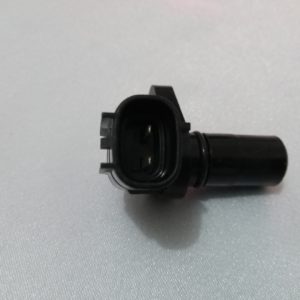Description
How to Prevent Engine Knock?
As you have learned, engine knock is a serious problem that can damage your engine and reduce its performance and efficiency. Therefore, it is better to prevent it from happening in the first place than to deal with it later. Fortunately, there are some fairly simple steps you can take to prevent engine knocks and keep your engine running smoothly and quietly. Here are some of them:
- Use high-quality fuel with the recommended octane rating for your vehicle. Octane rating is a measure of how resistant a fuel is to knocking. The higher the octane rating, the less likely the fuel will ignite prematurely under pressure. You can find the recommended octane rating for your vehicle in your owner’s manual or on the fuel filler cap. Using a lower octane fuel than recommended can cause engine knock, especially under heavy load or high-temperature conditions. Conversely, using a higher octane fuel than recommended will not improve your engine performance or efficiency, and may be a waste of money.
- Keep your engine clean and well-maintained. Carbon buildup on the piston crowns, cylinder walls, valves, and spark plugs can create hot spots that can trigger engine knock. Carbon buildup can also reduce the cylinder volume and increase the compression ratio, which can lead to higher pressure and temperature in the combustion chamber. To prevent carbon buildup, you should change your oil and oil filter regularly, use fuel system cleaners or additives occasionally, and perform periodic tune-ups to replace worn or damaged ignition components.
- Replace faulty spark plugs or wires. Spark plugs and wires are responsible for delivering the spark that ignites the air-fuel mixture in the cylinder. If they are worn out, damaged, or dirty, they can cause weak or erratic sparks that can result in incomplete combustion and engine knocking. You should inspect your spark plugs and wires regularly and replace them if they show signs of wear, corrosion, cracking, or fouling.
- Monitor your engine temperature and cooling system. Overheating can cause engine knock by raising the temperature of the air-fuel mixture and making it more prone to detonation. Overheating can also damage other engine components, such as gaskets, seals, hoses, and sensors. To prevent overheating, you should check your coolant level and condition regularly and top it up or flush it if needed. You should also check your radiator, thermostat, water pump, fan, and belts for any leaks or malfunctions.
- Listen for any unusual noises from your engine and address them promptly. Engine knock is not always audible to the driver, especially if it is mild or intermittent. However, if you do hear a knocking or pinging sound from your engine, you should not ignore it or dismiss it as normal. You should immediately reduce your throttle input and check your dashboard for any warning lights or messages. You should also scan your ECU for any trouble codes related to the knock sensor or other sensors. If the problem persists or worsens, you should take your vehicle to a mechanic for diagnosis and repair as soon as possible.
By following these steps, you can prevent engine knocks and protect your engine from damage. Remember that prevention is always better than cure when it comes to engine knocking.

Reviews
There are no reviews yet.